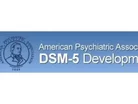Bereavement and shyness could be mental illnesses

Amendments to US guidelines regarding mental health disorders could mean that childhood shyness and bereavement-induced depression might be classed as mental illnesses.
Eccentric behaviour, sexual fetishes, defiantness in children and an addiction to the internet or gambling are also featured in the newly updated version of Diagnostic and Statistical Manual of Mental Disorders (DSM).
Now in its fifth version, DSM, which is published by the American Psychiatric Association (APA), is often viewed as a ‘bible’ on mental illnesses by experts in the field in America.
However, the changes to the guidelines have attracted some criticism from leading mental health doctors and so far a petition to stop its publication has received 11,000 signatures.
To read the latest edition of Healthcare Global, click here
- Comb-free head lice treatment gets FDA approval
- Heart disease gene is inherited in men
- University installs morning after pill vending machine
Even though the new edition of DSM should not directly affect the diagnosis of mental illnesses in the UK, it is psychiatrists and psychologists there that are most concerned.
They believe that eventually, if more people are diagnosed with mental illnesses because of conditions that are generally considered to be normal – such as shyness – it could affect the way such conditions are viewed in the UK.
Commenting on DSM-5 Peter Kinderman, the head of Psychology at the University of Liverpool, said: “Many people who are shy, bereaved, eccentric, or have unconventional romantic lives will suddenly find themselves labelled as mentally ill.”
“It's not humane, it's not scientific, and it won't help decide what help a person needs.”
Meanwhile, Simon Wessely from the Institute of Psychiatry at London’s King College University, said:
“We need to be very careful before further broadening the boundaries of illness and disorder.
“Back in 1840 the census of the United States included just one category for mental disorder.”
He added: “By 1917 the American Psychiatric Association recognised 59, rising to 128 in 1959, 227 in 1980, and 347 in the last revision. Do we really need all these labels?
“Probably not. And there is a real danger that shyness will become social phobia, bookish kids labelled as Asperger's and so on.”
The Healthcare Global magazine is now available on the iPad. Click here to download it.
- Pharma, AI & the US: This Week's Top Healthcare StoriesTechnology & AI
- McKinsey: How AI is Addressing the Mental Health CrisisTechnology & AI
- Converge International Leading way in Omnichannel TelehealthDigital Healthcare
- 48% of women say work has a negative impact on mental healthDigital Healthcare



